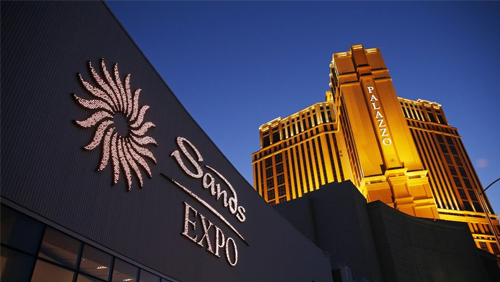Las Vegas Sands Corp. (LVS) net income rose only 1.8 percent in the second quarter of 2018, to the disappointment of analysts.
LVS announced that its Q2 earnings stood at $556 million or $0.70 per share, short of market expectations of $0.78 per share.
 The market reacted negatively with LVS shares sliding 5.4 percent to $71.10 in extended trading.
The market reacted negatively with LVS shares sliding 5.4 percent to $71.10 in extended trading.
Consolidated net revenue of LVS climbed 6.2 percent to $3.30 billion in the three months ending June 30, 2018. Operating income fell 2.4 percent to $797 million.
LVS attributed its lower income to softer rolling chip volume and win percentage in its Singapore unit, offsetting gains in Macau. The company also wrote off $92 million in costs from the Four Seasons Macau tower project.
LVS founder, chairman and CEO Sheldon Adelson was nonetheless happy that the firm’s balance sheet “remains the strongest in the industry.”
“We experienced strong growth in both the VIP and mass table games segments, enabling us to grow our market share of gaming revenue both year-over-year and sequentially. Our Macao operations are back to generating an annualized EBITDA run rate of $3 billion. Marina Bay Sands continue to produce strong cash flows, while Las Vegas has another strong quarter on a hold-normalized basis,” Adelson said during the earnings call on Wednesday.
In Macau, total revenue of Sands China Ltd. (SCL) jumped 18 percent to $2.11 billion in Q2. Net income hit $427 million, a 30 percent increase year-on-year.
SCL attributed the robust Macau results to The Venetian Macao, where overall revenue rose 23.1 percent to $830 million while casino revenue increased 25.8 percent to $677 million. Rolling chip volume surged 44.3 percent to a record $7.46 billion.
The Parisian Macao posted revenues and adjusted property EBITDA of $371 million and $114 million, respectively, both up slightly from Q2 2017.
SCL’s newest property had casino revenue of $308 million, up 8.1 percent, while rolling chip volume rose 19.1 percent to $4.48 billion and mass market table drop was up 8.6 percent to $1.06 billion.
Sands Cotai Central also had a robust second quarter, with net revenue rising 15.9 percent to $509 million.
International brokerage Union Gaming noted that SCL’s premium mass had notably outpaced base mass for the 8th consecutive quarter.
“We view SCL’s 2Q18 – above market VIP growth, and in line mass growth (and flattish sequential results) – as all the more impressive given what can only be described as a confluence of significant headwinds,” Union Gaming analyst Grant Govertsen said in its note.
However, LVS’ Macau gains were offset by the lackluster performance at Singapore’s Marina Bay Sands’ (MBS), which saw revenue dip 15.5 percent to $705 million and adjusted property EBITDA down 25.2 percent to $368 million.
MBS suffered from fewer bets and lower win percentage. Rolling chip volume plunged 32.6 percent to $5.87 billion and rolling chip win rate was 2.84 percent, down sharply from 4.42 percent one year ago.
Adelson expressed confidence that LVS will be able to penetrate the Japanese casino market after the country passed its controversial Integrated Resorts (IR) Implementation Bill.
Adelson told analysts that his decades-long ties to Japan will give LVS an advantage in securing a casino license. The billionaire used to produce COMDEX trade shows before it was sold to Softbank Corp.
“So I’ve got a good background and reputation in Japan for being the leading [meetings, incentives, conferences and events) Integrated Resort developer and operator. And I think that the estimates by people who know – say they know, whom we believe they know – say that we’re in the number one pole position,” he said.